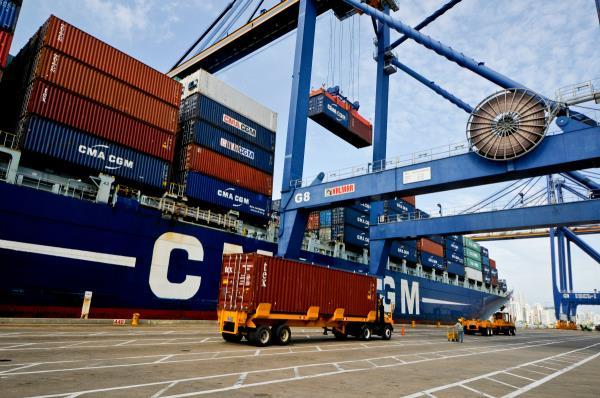Logistics and transport in the Port of Algeciras
Spain
Thursday 09 April 2020
port society of Cartagena
Through Spain, and specifically by sea, almost 85% of imports enter and 65% of exports leave. The 28 Port Authorities that manage the 46 ports of general interest, keep the machinery greased where operators, terminal workers, shipping companies, customs representatives (PARTIDA), freight forwarders, warehousemen and transport work, no matter what.
The port field is strongly linked to the productive economy of a country. The enormous and growing dynamism of port traffic has been reaffirming, as well as its highly competitive position with respect to first-level ports in the international arena.
The globalized world and the competitiveness of logistics chains is a key factor in the competitiveness of foreign trade in any country. And ports are fundamental in them, in addition to being one of the most reliable thermometers of health in the economy.
Spain enjoys a primary geostrategic position in freight traffic, combining import-export and transit traffic in a complementary way, placing ports such as Algeciras, Valencia and Barcelona in the Top 10 of European ports. Thus, the large international operators and shipping companies have a more than outstanding presence and important future plans in their ports, linked to investments in port infrastructure.
More than 12 million tons of fruit and vegetable products pass through Spanish ports. Spain is the leading exporting country in Europe and is also the recipient of fruit imports from third countries such as Brazil, Morocco, Chile, Costa Rica, South Africa, Argentina, Peru, Senegal, Ivory Coast, Mexico and Ecuador, among others.
This company have first-level importing companies in Spain, competing on an international scale in the “Champions League” of agri-food. And yes, they all pass through their ports, collaborating in the optimization of the links in the logistics chain, creating jobs and enhancing market competitiveness.
PARTIDA, with almost 100 years of history and experience, understands the current needs of importers / exporters. Inform them of the requirements to be met in the different fields (fiscal, documentary, customs and para-customs), provide them flexibility to operate in different ports and, above all, agility.
There are several or many things to keep in mind to get an agile procedure, PARTIDA said. From the moment a client contacts them, they request relevant information about the logistics, commercial and distribution operations they intend to carry out. From there, they advise on customs (adopt the correct Incoterm), tax (pay tariffs and VAT, if applicable) and on such important aspects as palletizing, labeling and packaging of merchandise.
Subsequently, they coordinate the reception of these with the shipping companies that transport both containers and trucks (ferries that operate in the Strait of Gibraltar). Next, they will manage the inspections that may be requested by Customs or customs agencies. And lastly, exit the goods so that they can leave the Ports.
PARTIDA says that their biggest secret is to treat the merchandise as if it were theirs. Wanting you to reach your destination as soon as possible in order to be part of your client's commercial success.
More information, please contact to:
Alvaro PARTIDA
apartida@partidalogistics.com
Managing Director





